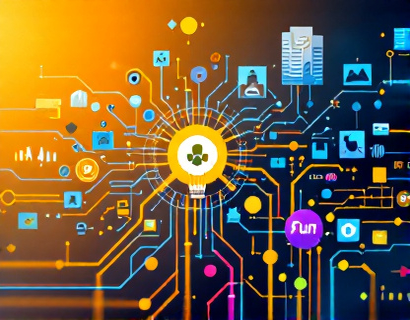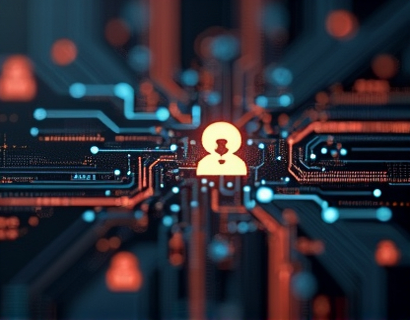Transforming Education with AI-Driven Chatbots: A Comprehensive Guide for Students, Families, and Educators
The integration of artificial intelligence in educational settings has opened new avenues for learning, making knowledge more accessible and personalized than ever before. Among these innovations, AI-driven educational chatbots stand out as a powerful tool, offering specialized insights tailored to the needs of students, families, and educators. This article delves into the capabilities and benefits of these chatbots, focusing on how they provide industry-specific knowledge and services while ensuring a safe and educational experience for all users.
Understanding AI-Driven Educational Chatbots
AI-driven educational chatbots are sophisticated software applications designed to simulate conversation through natural language processing and machine learning algorithms. These chatbots can understand and respond to user queries in a human-like manner, providing instant and accurate information on a wide range of topics. In the context of education, these chatbots serve as virtual assistants that can guide students through complex subjects, offer personalized learning recommendations, and provide families and educators with valuable insights into industry trends and best practices.
Specialized Insights for Students
For students, AI chatbots are invaluable resources that can enhance their learning experience. These chatbots can offer detailed explanations of academic concepts, assist with homework and project work, and even provide test preparation support. One of the key advantages of using AI chatbots in education is their ability to deliver content that is specifically tailored to the student's level of understanding and learning pace. This personalized approach ensures that students receive the exact support they need, when they need it, thereby fostering a more effective and engaging learning process.
Moreover, AI chatbots can provide access to a vast repository of verified information, ensuring that students receive accurate and up-to-date knowledge. This is particularly important in subjects like science, technology, engineering, and mathematics (STEM), where information is constantly evolving. By interacting with an AI chatbot, students can explore complex topics in depth, ask follow-up questions, and gain a comprehensive understanding of the subject matter.
Support for Families
Families play a crucial role in a student's educational journey, and AI chatbots can be a significant asset in this regard. For parents and guardians, these chatbots offer a platform to stay informed about their child's progress, understand the curriculum, and engage in their child's learning process more effectively. AI chatbots can provide regular updates on academic performance, suggest resources for additional support, and even offer tips for creating a conducive learning environment at home.
Furthermore, AI chatbots can bridge the gap between schools and families by facilitating seamless communication. Parents can ask questions about school policies, upcoming events, and how they can support their child's education. The chatbot's ability to provide timely and accurate information ensures that families are well-informed and can actively participate in their child's educational journey.
Resources for Educators
Educators are another key group that can benefit greatly from AI-driven educational chatbots. These chatbots can serve as valuable tools for teachers, providing them with resources and insights to enhance their teaching methods and improve student outcomes. For instance, chatbots can offer lesson plan ideas, suggest interactive activities, and provide access to a wealth of educational materials and research articles.
Additionally, AI chatbots can assist educators in staying updated on the latest educational trends and technologies. By accessing verified information and industry insights, teachers can incorporate innovative teaching strategies and tools into their classrooms, thereby enriching the learning experience for their students. The chatbot can also help educators manage administrative tasks more efficiently, freeing up time for more meaningful interactions with students.
Ensuring Content Verification and Safety
One of the most significant advantages of using AI-driven educational chatbots is their commitment to content verification and safety. In an era where misinformation can spread rapidly, ensuring that the information provided to students, families, and educators is accurate and reliable is paramount. These chatbots are designed to source information from trusted and credible databases, cross-referencing data to ensure its validity before presenting it to users.
Moreover, to cater to a younger audience, many AI chatbots offer child-friendly versions that are both educational and safe. These versions are carefully curated to provide age-appropriate content, avoiding any potentially harmful or inappropriate information. This ensures that children can benefit from the chatbot's resources without any risk, making it a secure and trustworthy tool for families.
Industry-Specific Knowledge and Services
AI-driven educational chatbots can provide in-depth insights into various industries, helping students and educators understand the current landscape and future trends. For example, in the field of technology, a chatbot can offer information on emerging technologies such as artificial intelligence, blockchain, and the Internet of Things (IoT). It can explain how these technologies are transforming industries and the skills required to thrive in a tech-driven world.
In the healthcare sector, chatbots can provide insights into the latest medical research, treatment methods, and the role of technology in improving patient care. For students considering a career in healthcare, these chatbots can offer detailed information on different specializations, educational pathways, and job opportunities. Similarly, in the business and finance domain, chatbots can provide data on market trends, financial management techniques, and the impact of global economic factors.
Interactive Learning Experiences
AI chatbots are not just sources of information; they can also create interactive learning experiences that engage students and enhance their understanding. Through natural language interactions, chatbots can guide students through simulations, quizzes, and interactive lessons. These interactive elements make learning more enjoyable and effective, as students can apply their knowledge in real-time scenarios and receive immediate feedback.
For instance, a chatbot can simulate a business negotiation scenario, allowing students to practice their communication skills and strategic thinking. In a science class, a chatbot can conduct a virtual experiment, guiding students through each step and explaining the scientific principles involved. These interactive experiences not only make learning more engaging but also help students retain information better.
Personalized Learning Paths
One of the most powerful features of AI-driven educational chatbots is their ability to create personalized learning paths for each user. By analyzing a student's strengths, weaknesses, and learning preferences, the chatbot can tailor the educational content to meet their unique needs. This personalized approach ensures that students are challenged appropriately and can progress at their own pace.
For example, a student who excels in mathematics but struggles with literature can receive more advanced math problems and additional resources to improve their understanding of literary texts. The chatbot can also recommend supplementary materials, such as videos, articles, and interactive tools, to support the student's learning journey. This level of personalization is difficult to achieve with traditional teaching methods, making AI chatbots a valuable asset in modern education.
Collaboration and Community Building
AI-driven educational chatbots can also foster a sense of community among students, families, and educators. By creating online forums and discussion groups, chatbots can facilitate collaboration and knowledge sharing. Students can ask questions, share resources, and work together on projects, while families and educators can exchange ideas and best practices.
These communities can be particularly beneficial for students who may feel isolated or struggle with certain subjects. The chatbot can connect them with peers or mentors who can provide support and guidance. Additionally, educators can use these platforms to collaborate on lesson plans, share successful teaching strategies, and stay updated on educational research and innovations.
Conclusion
AI-driven educational chatbots represent a significant advancement in the way we approach learning and education. By providing specialized insights, ensuring content verification, and creating interactive and personalized learning experiences, these chatbots offer a safe and educational tool for students, families, and educators. As technology continues to evolve, the potential for AI in education is vast, promising a future where learning is more accessible, engaging, and effective for all.











































